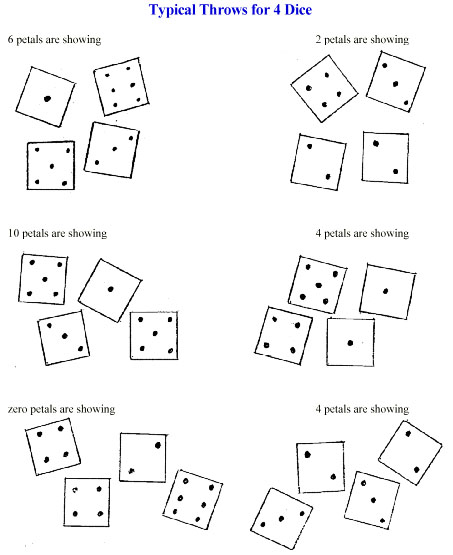In an attempt to simulate the intellectual and emotional experience of a person using only concrete reasoning patterns in a class that often requires formal operational thought, play the game called Petals Around A Rose. The purpose in playing this game is to have all participants have a common learning experience to serve as background for Piaget's second key concept. To this end, as you play the game please note your thinking processes.
To begin the game, someone who knows the rule will roll several dice (start with five) and will tell you now many petals around a rose are showing for that roll. This will be repeated as often as necessary for most players to discover what the rule is which determines the number of petals showing on a roll. The same rule will work for any number of dice. The following page gives examples of the number of petals showing on throws of four dice.

The game Petals Around A Rose is very simple but seems quite baffling to some. It has only two basic directions: (1) The name of the game tells you what the rule is. (2) No one is EVER told what the rule is. Everyone must discover the rule for themselves. During the play of the game, if you have conjecture about what the rule is, write it down, and let the leader know you have a conjecture. Please do not tell him or anyone else what your conjecture is. The leader will then allow you to test your conjecture by calling forthcoming throws for the dice or by placing the dice in any position you wish and telling how many petals are showing. Once you have a conjecture about the rule which consistently gives the correct number of petals, you have won the game. You are reminded of direction (2) so others may also win. In this game each person plays against himself/herself, not against other players.